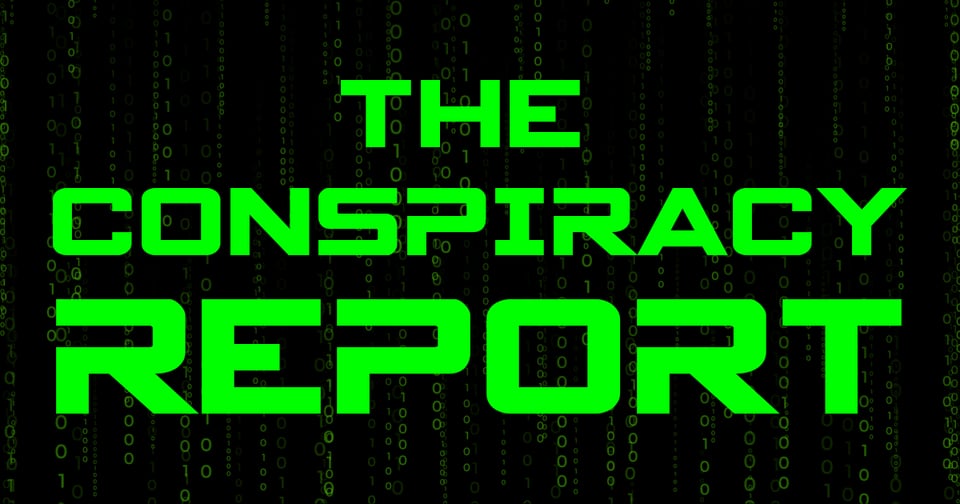Jan. 21, 2025, midnight
FTC KOs NDAs: Government Sticks its Nose into Employment Contracts

The Conspiracy Report

The United States is a nation of regulation. A bevy of bureaucrats doing their damn level best to screw up the affairs of American business — large and small.
In their latest endeavor to mess things up, the Federal Trade Commission, the FTC, decided in 2024 to launch an attack on an almost ubiquitous provision in any significant employment contract, the non-disclosure clause, or the NDA.
It’s also a clause found in many preliminary contracts precedent to a merger and acquisition, whether on the international corporate level, or the mom and pop sale of a business.
So here’s what happened:
In an April 2024 press release on its website, the FTC announced:
‘Today, the Federal Trade Commission issued a final rule to promote competition by banning non-competes nationwide, protecting the fundamental freedom of workers to change jobs, increasing innovation, and fostering new business formation.’[1]
Let’s turn our rocket ship to planet reality, and look at what that less than brilliant move really achieved.
For those in the real world of business, (and not the imaginary realm of government employment where you get paid to do very little except screw with the people who do a great deal for this country by providing a tax base and employment opportunities), business procedures, customers, suppliers, and marketing plans are data of significant value and many times are not easily discoverable from public sources.
The business owner would naturally seek to protect that information, and therefore was created the Non-Disclosure Agreement.
Signing such an agreement is often a sine qua non in obtaining employment with a company. Signing one is also the first real step in the beginning of exploration and negotiation of a possible merger and acquisition.
So, when the FTC KOs the NDA, does that really protect the ‘fundamental right of workers to change jobs’? Or does it instead make it less likely that a worker will be hired in a position that exposes him to important proprietary information of the employer?
Does such interference with a basic protection for the employer bring about ‘increasing innovation’ or does it turn a blind eye to what may become rampant industrial espionage?
Is it a stimulus to ‘fostering new business formation,’ when the world of business has just had taken from it the very contract clause that can protect that business from destruction when all of its proprietary information lies unprotected?
Government genius, FTC Chairperson Lina M. Khan, who never ran even a lemonade stand in her professional life; a life of working as a lawyer (but not for herself), and as an academic, came up with this bit of wit and wisdom in the aforesaid press release:
‘Non-compete clauses keep wages low, suppress new ideas, and rob the American economy of dynamism, including from the more than 8,500 new startups that would be created a year once non-competes are banned.’[2]
Let’s examine that nonsense from this non-compete nincompoop.
First, in low wage jobs, the world of burger flippers, the cab drivers, etc., it’s unlikely that anybody is signing a non-disclosure agreement.
It’s in the higher levels of employment that it’s found, so it doesn’t keep wages low. It doesn’t suppress new ideas, it protects them. As to where she got these 8,500 new startups that would be created a year once there are no more non-compete agreements figure, it was likely pulled out from a location that would be in the realm of expertise of her proctologist.
Since the FTC yanked NDA protection in April 2024, how the hell could she come up with any figure of post NDA startups in the same press release that mentioned the new FTC ban?
In law, there is a saying when a contract is introduced into evidence, ‘the document speaks for itself.’ In the case of this FTC press release that’s especially true. It’s proof positive that bureaucrats, (despite their formal education, when they have zero entrepreneurial ability or the courage to go out on their own), are idiots.
Fortunately, sometimes the courts can come to the rescue of business when the government goofballs get it wrong and irrationally regulate.
Ryan LLC v. Federal Trade Commission was a case brought in the Northern District of the Texas Federal Court which caused an injunction to issue against the establishment and enforcement of the FTC anti-NDA ban.
It determined that the FTC ruling, besides being outside of their power to promulgate, was arbitrary and capricious.
Likewise, in the Florida federal courts, Properties of the Villages Inc. v. Federal Trade Commission a similar injunction was issued.
Of course, since the main function of a bureaucracy is not only to preserve its existence but to increase its powers, the FTC appealed both cases.[3]
On January 2, 2025, the FTC filed its brief in the appeal of the Texas decision, and argued that it does have authority to regulate ‘unfair competition.’
In addressing the ‘arbitrary and capricious’ part of the Texas decision, here is the self-serving nonsense the FTC averred, ‘that it reasonably concluded that non-competes are restrictive and tend to negatively affect competitive conditions.’[4]
Let’s take a look at that logic.
Of course, an NDA is restrictive, that’s the point. It restricts the unauthorized dissemination of proprietary information.
In evaluating a business for the purpose of an acquisition, its tax returns, its profit and loss statements, its ‘books’ are going to be examined, and these, obviously contain a tremendous amount of confidential financial information.
Shouldn’t these financial documents be restricted in its dissemination to only those parties and their advisors involved in the negotiations of the potential acquisition?
XYZ Corporation hires a representative to market its new technology. In the course of such representation, the hire is going to be privy to significant proprietary information. Should that be able to be randomly communicated? Should the hire be able to jump ship and reveal all to the competition of the previous employer?
The answer to these questions is obvious to any sensible person that does not work for a government regulatory body.
Why You Should Care
Chances are you have either worked for a business, or you have owned one, or both at one time or another. In the course of your ownership there was generated confidential information, the kind you don’t want your competitors to have access to.
With the FTC attempted ban on NDAs you wouldn’t have any protection from that happening.
Or, you are being contemplated as a hire by a corporation that has a reasonable desire to protect its proprietary information. Normally, an NDA could go a long way to your being hired. But if that isn’t allowed to exist, the potential employer now has to consult its crystal ball to see if you can keep your mouth shut about what you learn in the course of your employment.
So, in a choice between contractual restriction, or a wild guess — which would be better both for the business and its potential hires?
We’ve already seen litigation taking place in 2024 wherein the government seeks the right to mandate disclosure of ownership of corporations and LLCs, under severe legal penalties for non-compliance, even though this has not been a requisite for many years, and our economy didn’t collapse.
Now they are fighting to obtain another pointless restriction on business, one which has dangerous ramifications for both owners and future employees.
We are witness to an accelerated war on business launched from the ivory towers of the bureaucrats who have no real-world experience, and that is something about which we should be deeply concerned.
[1] FTC Announces Rule Banning Noncompetes FTC WEBSITE 4/23/24 https://www.ftc.gov/news-events/news/press-releases/2024/04/ftc-announces-rule-banning-noncompetes
[2] FTC PRESS RELEASE 4/23/24 op. cit.
[3] FTC APPEALS TEXAS FEDERAL COURTS DECISION 10/22/24 Chin, Perlman, Tan PROSKAUER LAW FIRM https://www.lawandtheworkplace.com/2024/10/ftc-appeals-texas-federal-courts-decision-halting-its-noncompete-ban-nationally/
[4] FTC FILES OPENING BRIEF IN NON-COMPETE RULE APPEAL, 1/6/25 STEVENS & LEE LAW https://www.stevenslee.com/health-law-observer-blog/ftc-files-opening-brief-in-noncompete-rule-appeal/